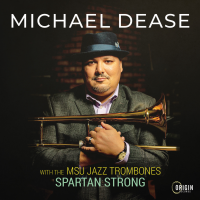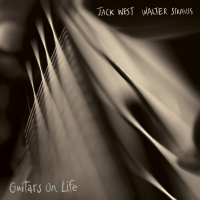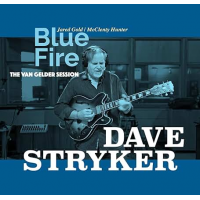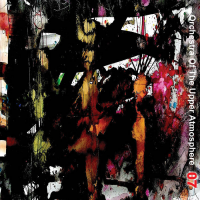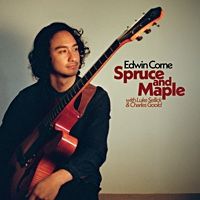Home » Jazz Articles » Album Review » Pan-Afrikan Peoples Arkestra: Live at I.U.C.C. 11/26/1978
Pan-Afrikan Peoples Arkestra: Live at I.U.C.C. 11/26/1978
All this provided immense stability to Tapscott, who had run his dynamic orchestra, dubbed The Pan-Afrikan Peoples Arkestra (or PAPA), since 1962. Up until Albach, paying the rent was a real issue, and Tapscott had released only about four recordings, all but one (from 1969) in the last two years. Tapscott also had some incredible challenges in November of 1978, the most significant being that he had suffered through a massive aneurysm in the summer of that year and very nearly died. Another was that he was about to lose his music director, frequent arranger, multiple saxophonist and, in Tapscott's absence, de facto band leader Jessie Sharps to the US Army. It is at this time that PAPA returned to the I.U.C.C. stage after several months away for a particularly volatile show.
That gig is captured on a release by the newly reformed Nimbus West Records, Live at I.U.C.C. 11/26/78. Many know that Albach, pleased with two studio albums but still feeling that something was missing, recorded Tapscott and PAPA at every I.U.C.C. show between November of 1978 and April of 1980. These many recordings resulted in what is often considered the best, most representative album for PAPA, Live at I.U.C.C.. That release, from 1979, compiled the best of several shows in the spring of '79, but it did not include music from this debut concert. It is a shame that it has taken this long to get the release into the public's hands.
Tapscott, clearly energized from his time away, is the sole pianist for this gig, not sharing any space with his standard second pianist, Linda Hill, while he conducted. The energy is super high throughout. Take the album's highlight, "To the Great House." This twenty one minute monster features a stomping, clapping group while the drums and piano play an infectious vamp that seems to get more intense. Into this comes Jesse Sharps, this time playing a six hole bamboo flute as if it was made for John Coltrane-level improvisation. As the whirling energy grows, he takes his playing farther and farther into the stratosphere until, at one point, he puts the flute down for a moment and screams loudly into the microphone. It is jarring, but it fits as Sharps clearly could not find anywhere else to go but here. The tenor and alto saxophones follow suite, and long-time drummer Everett Brown, Jr. finally takes it home with a cowbell of all things. It belongs in the upper pantheon of anything Tapscott ever did.
Not that the rest of it is lacking. Take the thirty minute opening cover of Horace Silver's "Jungle Juice." In its original, that song had a soulful vamp and a groovy hook, but Tapscott kicks it all up to a spiritual level and never lets go. Do know that this is a warts and all set, though the recording is surprisingly strong. Around the fifteen minute mark of second track, "Ballad for Samuel," the tape apparently runs out. The recording fades out during a great Tapscott solo and returns with one of the three basses taking one. It is better than not having the track, but it is also a reminder that this show was not performed with the idea of release. Also, for those averse to long songs, know that only two of these tracks are below twenty minutes, and one is the two minute coda of "Lift Every Voice" that always closed out the I.U.C.C. shows. Get past those issues and this is something truly special. Nimbus West is indicating that it will be the first release in a series, presumably covering many of the gigs at the I.U.C.C. Hopefully these are forthcoming, but if not a single other record is released, this one is worth it.
Track Listing
Jungle Juice, Ballad for Samuel, Lately's Solo, If You Could See Me Now, To the Great House, Lift Every Voice.
Personnel
Horace Tapscott
pianoJesse Sharps
saxophone, sopranoBillie Harris
saxophone, tenorSabir Mateen
saxophone, tenorHerbert Callies
clarinetMichael Sessions
saxophone, altoDavid Bryant
pianoAlan Hines
bass, acousticKamota Lawrence Polk
bass, acousticEverett Brown, Jr.
drumsDaa-Oud Woods
congasAlbum information
Title: Live at I.U.C.C. 11/26/1978 | Year Released: 2023 | Record Label: Nimbus West
Tags
PREVIOUS / NEXT
Support All About Jazz
 All About Jazz has been a pillar of jazz since 1995, championing it as an art form and, more importantly, supporting the musicians who make it. Our enduring commitment has made "AAJ" one of the most culturally important websites of its kind, read by hundreds of thousands of fans, musicians and industry figures every month.
All About Jazz has been a pillar of jazz since 1995, championing it as an art form and, more importantly, supporting the musicians who make it. Our enduring commitment has made "AAJ" one of the most culturally important websites of its kind, read by hundreds of thousands of fans, musicians and industry figures every month.














